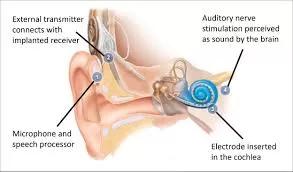WHO joins other UN agencies and partners in new research agenda for FGM

Research on female genital mutilation (FGM) over the past few decades has been instrumental in informing global guidance on how to prevent and address the harmful practice and its potentially negative consequences for health, as well as worldwide efforts across sectors to end the harmful practice.
Good quality research can only be ensured when the human rights of all research participants are safeguarded and respected. However, specific ethical guidance for conducting research on FGM has been unavailable – until today.
WHO has now launched a new guidance document to strengthen the ethical conduct of all research on FGM: Ethical considerations in research on female genital mutilation.
This invaluable resource highlights the key ethical considerations faced by researchers developing protocols and conducting research, and by research ethics committees reviewing protocols. It aims to maximize the impact and quality of research on FGM, whilst minimizing the risks for participants.
When women and girls participate in research on FGM, they are potentially at risk of unintended harms, which may have implications both for them and their families.
For example, when women and girls are asked about their experiences of undergoing FGM, they may be at risk of secondary trauma from the retelling of traumatic events, and fear of disclosure, or actual disclosure of their FGM status.
Such fears may affect participants’ responses to research questions, in contexts where deviation from social norms may result in serious sanctions to them and/or their families including social isolation and exclusion from social and economic opportunities.
Christina Pallitto, expert on FGM working at WHO and HRP comments, “The way that research is carried out really matters. It matters because it has an impact on the rights and well-being of people taking part in research on FGM – as well as on the quality and usefulness of results. Only high quality ethical research findings should inform programmes and policies. This new tool supports researchers in this way.”
In line with the concepts of the International ethical guidelines for health-related research involving humans published by the Council for International Organizations of Medical Sciences (CIOMS) the new WHO guidance aims to ensure that any research carried out on FGM conforms to these principles and that the scientific value of the study outweighs any potential harm to research participants and researchers themselves.
The publication provides guidance for any type of study on FGM: descriptive studies; observational studies of associations/correlations; experimental and quasi-experimental intervention research; and implementation research. Considerations are described for all stages of the research process—from study design and implementation to interpretation and dissemination of results.
Further shining the spotlight on the importance and achievement of research on FGM, WHO today joins UN partners UNICEF, UNFPA, and Population Council, Kenya, to launch A research agenda to strengthen evidence generation and utilization to accelerate the elimination of female genital mutilation.
As the UN works to speed up and intensify progress towards achieving the elimination of FGM by 2030, it is crucial that there is increased investment in generating evidence on FGM – recognizing how scientific evidence plays a crucial role in strengthening efforts to prevent, address and end FGM.
As the authors Dennis Matanda and Esther Lwanda-Walgwe explain, the new research agenda aims:
- To prioritise the evidence most urgently needed by researchers, programme implementers and policymakers to facilitate the elimination of FGM for the next decade
- To promote uptake and use of FGM research findings in policy/programme planning and implementation.
It achieves this by: Refining the research questions within identified thematic areas requiring further research over the next five years; Identifying bottlenecks in the uptake of research findings in programming for the elimination of FGM; developing strategies for improved dissemination and uptake of research; and outlining considerations to support the implementation and achievement of the new research agenda.
By generating evidence on what works to end FGM, it is possible to bridge the divide between research and programming – to ensure that evidence-based approaches are identified and put into practice at a national level in a sustainable way.











